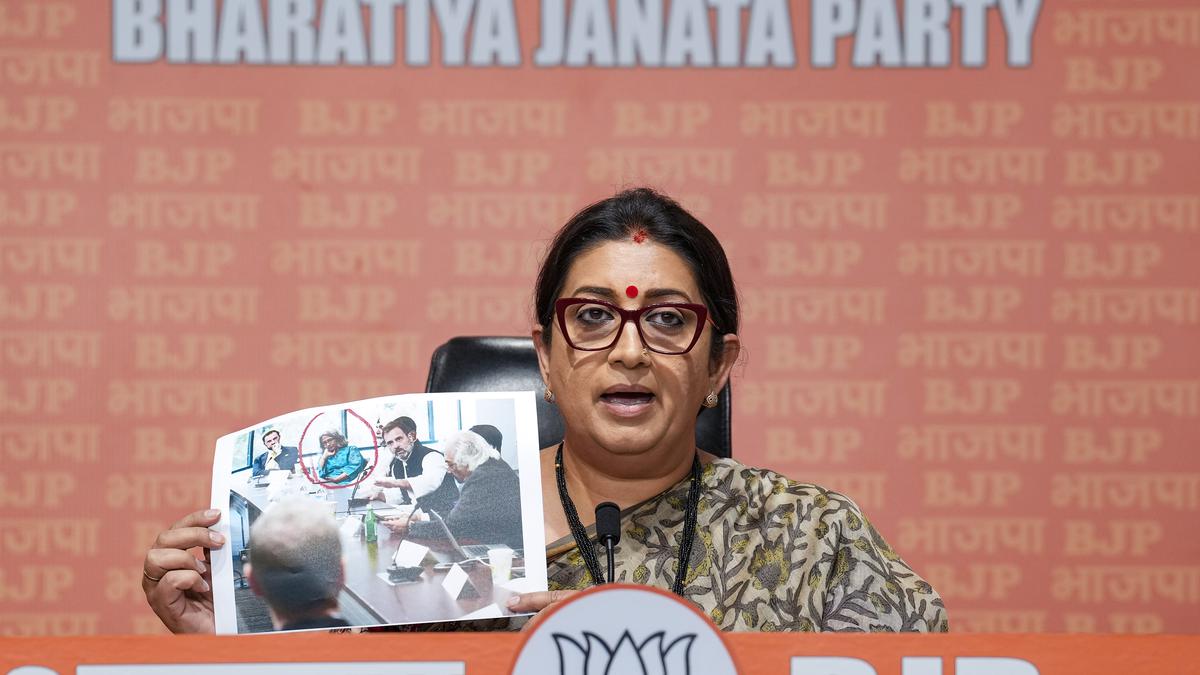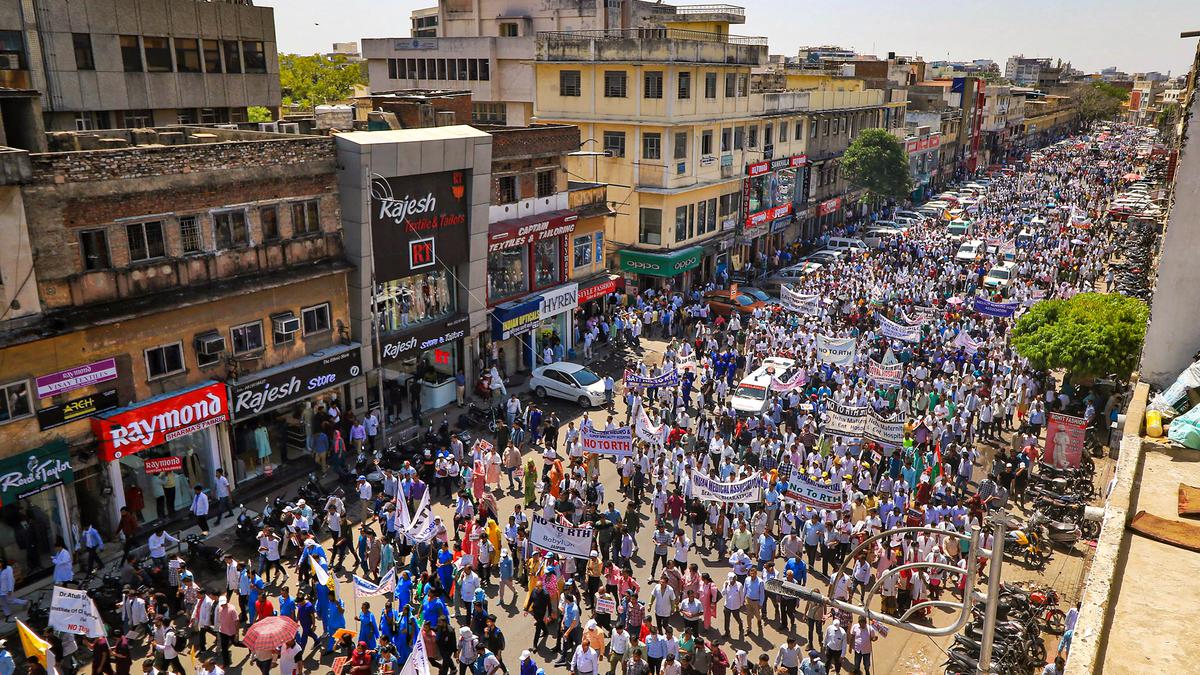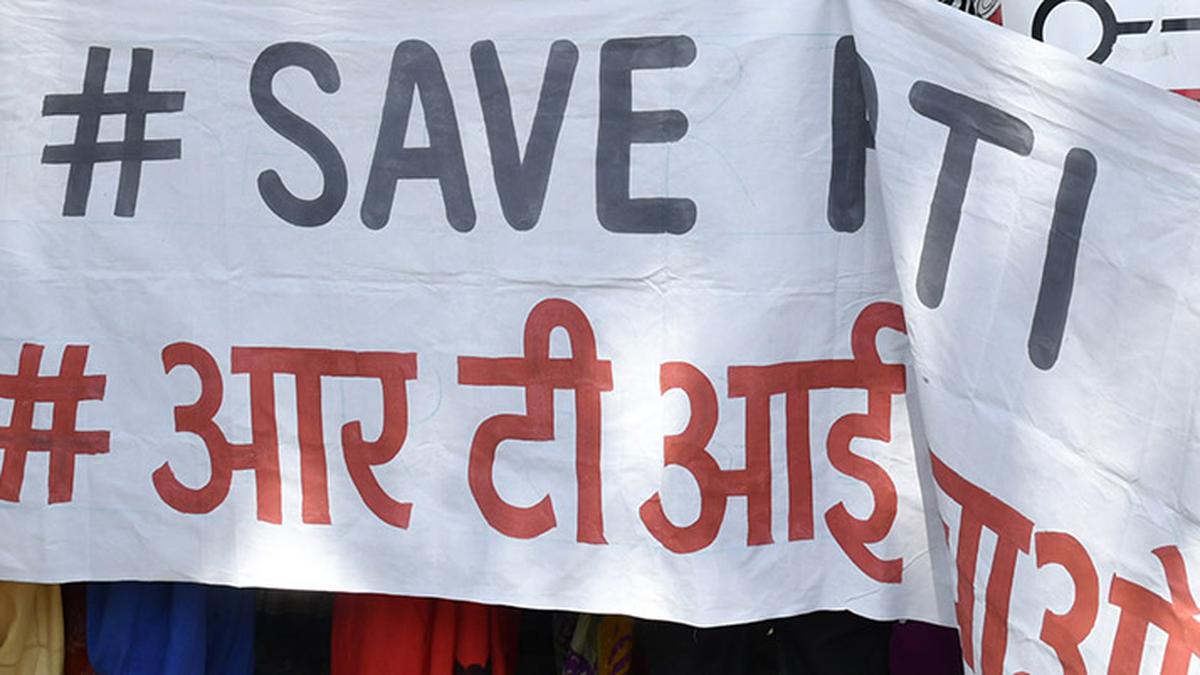
This week, we see three important updates from the country, one horrendously shocking, one surprising, and another welcoming. We look at an update from Manipur, Rajasthan, and the EdTech giant Byju's in this chapter of TypeRight.
We start with the worst news, which is also triggering. This shocking incident happened in Manipur, where, as we had mentioned earlier, a long ethnic conflict had been taking place since several months.
This news - “In Manipur Horror, 2 Women Paraded Naked On Camera, Allegedly gang-Raped” - is an indication of how deep the violence went, and if the reports are to be believed, this is not even the only such incident.
Adding to the gravity of the situation is the fact that this actually happened two months ago. In a report from The Wire, "If there was no Internet shutdown, those videos would have surfaced over two months ago and the horror could have been addressed speedily."
So we know almost for a fact from official sources that similar incidents have taken place, and we also know that the authorities took a long time to respond. In fact, the responses came only after the news became viral on Twitter and people protested demanding answers.
The government also tried to stop the information from spreading - in order to prevent further inflammation.
While a lot of this is due to historical impunity and other lack of attention to events happening, something several people from the North East states have accused the mainland of doing previously as well-
One part of this is also due to the inability to report accurately from the ground, or get information across - mostly due to Internet shutdowns.
This is still seen, even as the Internet curfews were being lifted, in the undertakings citizens have to sign like the one below, permitting the state to physically monitor all activity:

Stopping flow of information mostly amounts to stopping justice rather than stopping misinformation. There need to be other ways to counter misinformation.
On to the next news, this time from a popular EdTech giant that is now in the midst of a crisis:
Byjus, starting from a small mock-test application, and having risen to international stature, purchasing giants like Aakash, have now come under severe crisis after the 1.2 trillion dollar loans it has taken has missed a 40 million payment.
The irony here is the several thousand parents the company has driven into debt with their predatory pricing schemes:
(From the article above: )"Most were parents who said Byju’s staff took advantage of a desire to provide the best education for their children, and encroached on their privacy by ambushing them in public, pressuring them at home, or secretly collecting their data. Complaints to Byju’s and requests for refunds were generally ignored – leaving customers with little recourse, they said."
While Byju's is not received well either with a lot of unhappy customers, nor the investors, the crisis means real problems for several of the employees who are facing pay cuts and even layoffs. This news explains:
And for the final part of today's blog, some positive news from Rajasthan, where continuous struggle from gig workers and NREGA and RTI activists have led to some progress on the welfare front:

Rajasthan also passed a Right to Health Bill last April which was another part of their expansion of welfare schemes:
While Rajasthan is making all kinds of good news introducing one after the other, several welfare oriented bills; here is another one that finally passed - Gig Workers (Registration & Welfare) Act 2023. Promptly after the Act was announced, Nikhil Dey and Aruna Roy of the Mazdoor Kisan Shakti Sanghatan wrote a detailed piece for The Hindu's editorial on the Gig Workers Act and how it became an Act.

And who could be more happier than the Gig Workers Unions across the country. Here's what one of the union had tweeted:
Union leader Shah Salauddin went on to say, in an interview with NewsMeter: “For every ride, an extra 1 rupee will go into a fund for drivers, which customers won't mind. The fund's amount will be distributed to drivers through different schemes based on their priorities, decided by the welfare board as the fund grows.”
In Other News
With all the data coming in from surveys, and a census being delayed for the first time in several decades, the government is also unhappy with the data that is coming out of the NFHS:
The Personal Data Protection Bill that we had earlier covered in another chapter of TypeRight, is now the subject of controversy, as the JPC (Joint Parliamentary Committee) was overridden for a Bill that would even make the RTI laws weak and ineffective.

Yet another report of an Internet shutdown, this time from Bihar:
Data Breaches have often been seen in the news, but other than scrambling to change your passwords, have we really looked at the costs of it? This article takes a look.
Here are some updates from the activities of Digital Empowerment Foundation
From our Charkha for Digital Citizens initiative:
Take a listen at this podcast with Osama Manzar, the founder-director of DEF:
And this interview on Agami.in
And finally, some updates from Ladakh where we have been training children on digital technology:
Until Next Week!

































 might be?](https://sk0.blr1.cdn.digitaloceanspaces.com/sites/1394/posts/714526/dbc8de4c-5c50-411f-aba0-55cfb74a692d.jpeg)

Write a comment ...